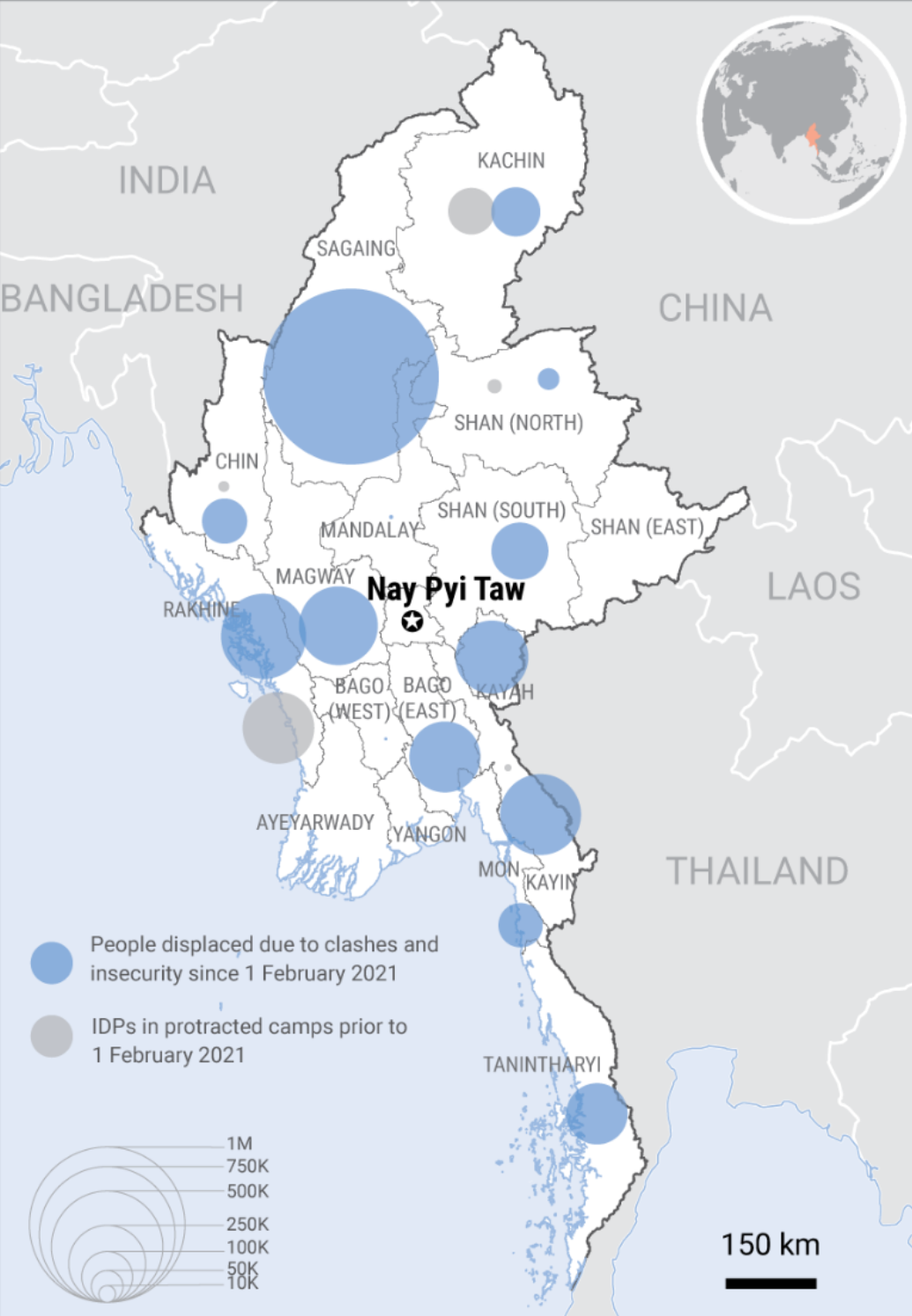Myanmar Humanitarian Update No. 39


HIGHLIGHTS & KEY MESSAGES
• Civilian protection concerns are on the rise as conflict continues to expand across the country. Pervasive landmine contamination, explosive hazards, and fighting with heavy weapons and aerial bombardment continues to drive displacement and exacerbate already severe humanitarian needs.
• Countrywide, more than 3 million people are estimated to be internally displaced. Many of the newly displaced are living without proper shelters, enduring severe weather in the monsoon season.
• Recent attacks and occupation of humanitarian facilities in Rakhine and other areas are elevating risks for both humanitarian personnel and the populations they serve.
• In Rakhine, intense fighting has forced thousands of people to flee their homes in recent months. In the state capital, Sittwe, civilian protection concerns are growing, with reports of newly planted mines, forced evictions, and mass arrests around the town area.
• Clashes have intensified in Kachin in several townships and are estimated to have reached within six miles of the state capital, Myitkyina. A large number of people are reportedly displaced.
• In northern Shan, the temporary ceasefire agreement between the Myanmar Armed Forces (MAF) and the Three Brotherhood Alliance is no longer holding, with the resumption of clashes in several townships during the last week of June.
• Six months in, the 2024 Humanitarian Needs and Response Plan (HNRP) remains critically underfunded, with only 12 per cent of required funding received, according to the Financial Tracking Service. More resources are urgently needed to support response efforts and alleviate the suffering of affected people in Myanmar.

